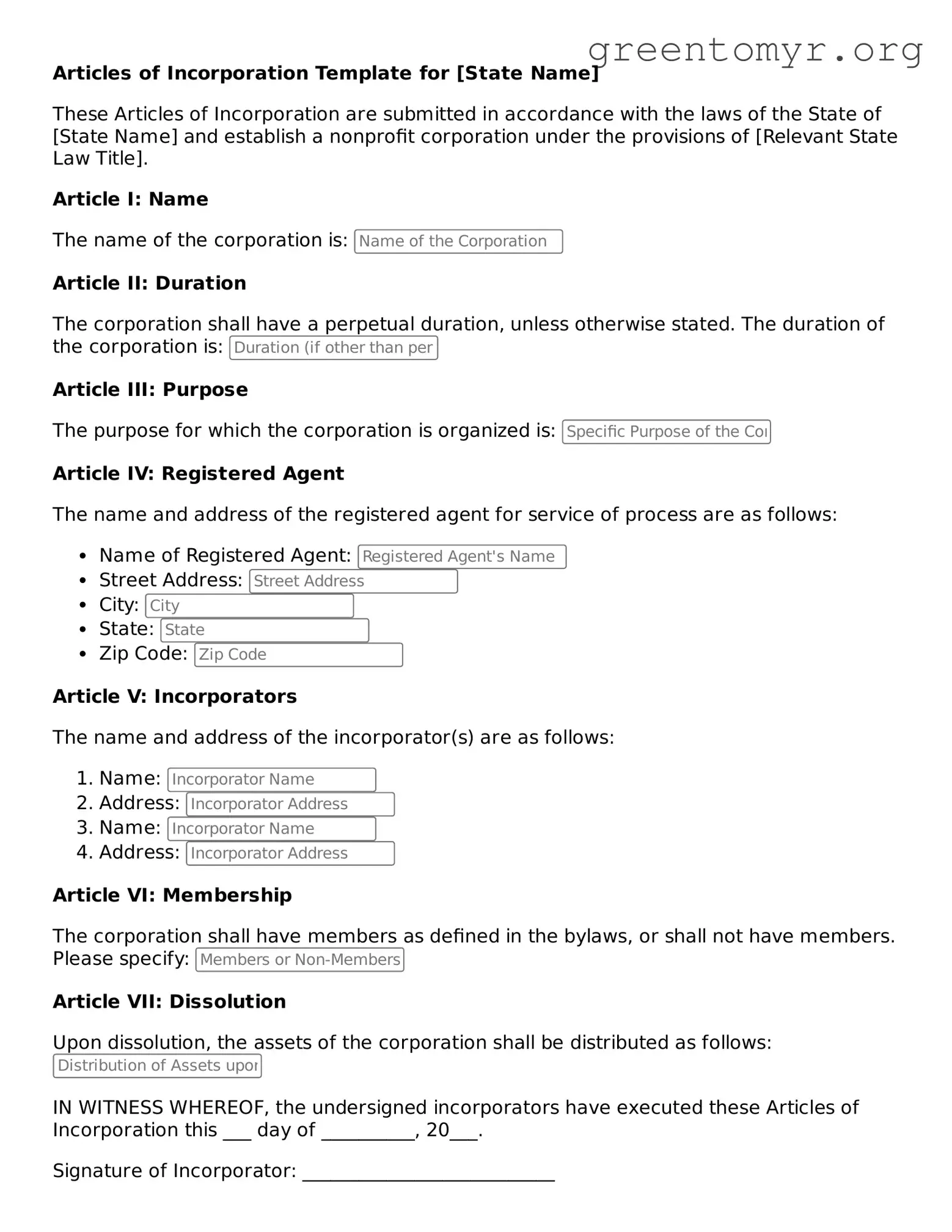Valid Articles of Incorporation Form
The Articles of Incorporation form is a crucial document that establishes a corporation's existence in the eyes of the law. It outlines essential information about the business, including its name, purpose, and structure. Completing this form is an essential step for anyone looking to start a corporation, so take action now.
Fill out the form by clicking the button below.
